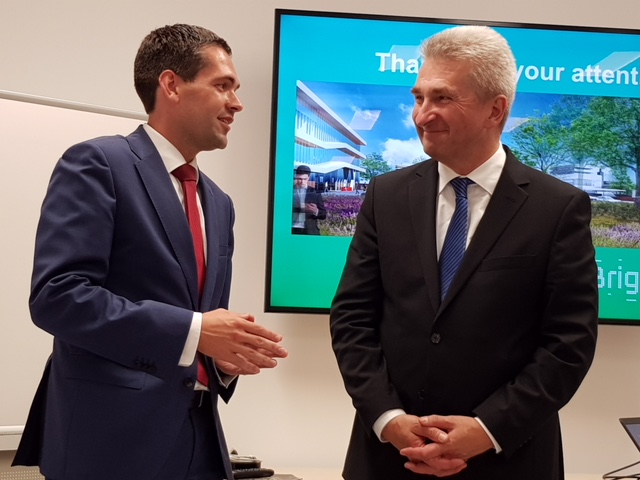News
-
Remzi Celebi, Assistant Professor at the Institute of Data Science (IDS) and technical co-coordinator for the AIDAVA project, discusses how Artificial Intelligence, data curation automation and knowledge graphs are used to give patients more control of their health data.
-
Het aantal mensen met overgewicht en diabetes stijgt. Om te bepalen of iemand te zwaar is, wordt gekeken naar de BMI. Maar wat zegt je BMI eigenlijk over je gezondheid? En wat kan de overheid doen om het aantal mensen met overgewicht terug te dringen? Obesitas-onderzoeker Gijs Goossens vertelt...
-
Mark Post is a man on a mission. The environmental damage caused by livestock farming is far too great and must be dramatically reduced. His contribution? Cultured meat. These days, he’s not just a scientist, but also the director of Mosa Meat, a business that has drawn 75 million Euros in...
-
Food scientist Alie de Boer from the UM campus in Venlo is among the final five talented researchers who have a chance of winning the New Scientist title ‘Science Talent of the Year’.
-
Amrapali Zaveri, postdoc at IDS, was part of a panel on “Increasing Scientific Productivity through Artificial Intelligence” of the EuroScience Open Forum conference.
-
During his meetings, deputy Van den Akker indicated that he would like to establish more cooperation between North Rhine-Westphalia and Limburg in the future.
-
Maastricht University placed #201-250 out of 1000 universities worldwide in the 2018 Times Higher Education Computer Science subject ranking
-
Principal components analysis (PCA) is a common unsupervised method for the analysis of gene expression microarray data, providing information on the overall structure of the analyzed dataset.
-
Chris Evelo (ELIXIR Netherlands) is the new co-leader of the ELIXIR Interoperability Platform, replacing Barend Mons, the Head of Dutch ELIXIR Node. Evelo joins Helen Parkinson (EMBL-EBI) and Carole Goble (ELIXIR UK) in leading the Interoperability Platform.
-
MaCSBio's director of education Bert Smeets has been interviewed for the Dutch serie: 'Research Loont' (translation: 'Research pays off') about the unraveling of genetic causes of hereditary metabolic disease among children.








